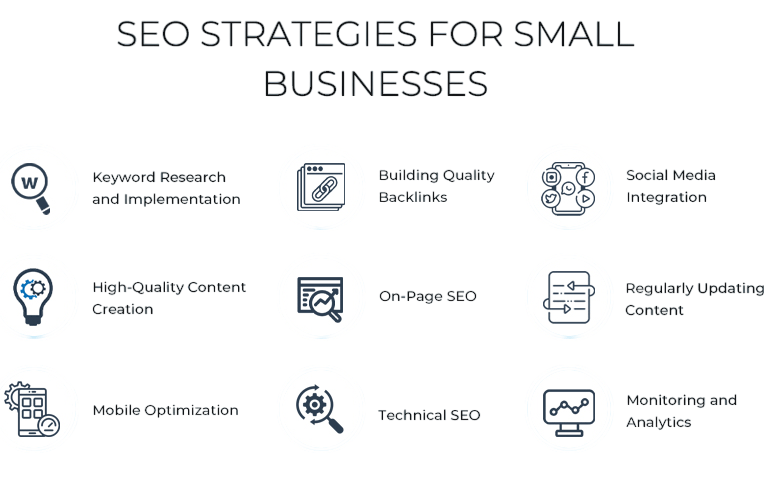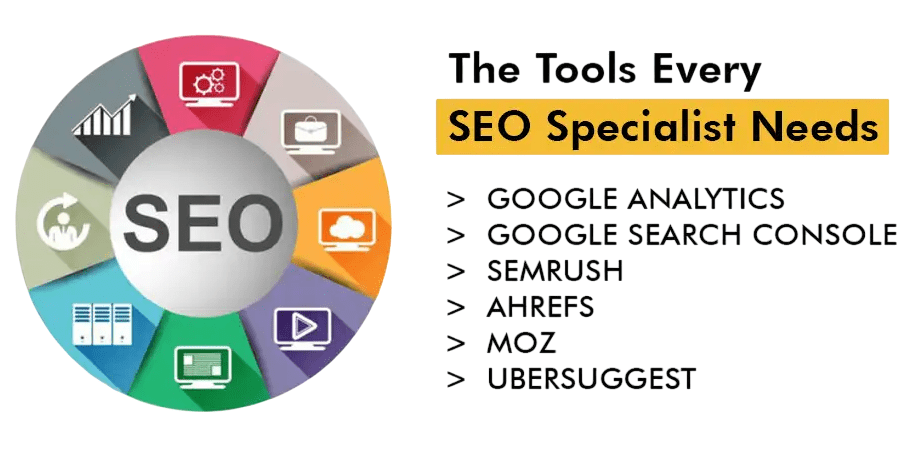
- Introduction to the SEO Role
- Why SEO is Crucial for Businesses
- Overview: SEO Job Description
- Core Responsibilities of an SEO Specialist
- Key Skills and Qualifications
- Types of SEO Roles
- Tools Commonly Used by SEO Professionals
- Typical Career Path and Growth Opportunities
- How to Write a Great SEO Job Description
- Sample SEO Job Description Template
- Conclusion
Introduction to the SEO Role
In the digital age, Search Engine Optimization (SEO) is fundamental to online visibility and business growth. An SEO specialist is responsible for improving a website’s organic search rankings, increasing traffic, and ultimately driving conversions core responsibilities covered in Digital Marketing Training, where learners master keyword strategy, on-page optimization, technical SEO, and analytics to drive measurable growth through organic visibility. Understanding the SEO job description helps both employers and job seekers clarify expectations, qualifications, and career goals. SEO refers to the process of optimizing a website to rank higher in search engine results pages (SERPs) such as Google, Bing, or Yahoo. This involves a combination of technical website improvements, keyword research, content creation, link building, and performance analysis.
Ready to Get Certified in Digital Marketing? Explore the Program Now Digital Marketing Online Training Offered By ACTE Right Now!
Why SEO is Crucial for Businesses
Search engine optimization (SEO) gives businesses an effective digital marketing strategy with many benefits beyond just improving website visibility. By boosting organic traffic through unpaid search results, SEO builds brand trust and positions your company as a leader in the industry an outcome shaped by Google Algorithm Changes, where updates increasingly reward value-driven, user-centric strategies. Brands that prioritize content quality, ethical AI, and seamless UX are seeing stronger rankings, improved authority, and long-term visibility across competitive digital landscapes. Unlike costly paid ads, SEO offers a budget-friendly marketing method that provides long-term returns on investment.

This helps businesses grow sustainably online. Additionally, using SEO best practices improves user experience by creating websites that are easier to navigate and respond well. These sites not only rank better in search results but also offer visitors meaningful interactions. This approach creates a real competitive edge, helping organizations beat rivals by achieving high search engine rankings and drawing in quality, targeted traffic that can turn into loyal customers.
Overview: SEO Job Description
An SEO specialist improves a website’s digital presence by planning and executing search engine optimization strategies. They work closely with teams like content creators, web developers, and marketing professionals to optimize web pages, create SEO-friendly content, and perform thorough performance analysis collaborative efforts that support What is Display Advertising, where visual ads such as banners, videos, and interactive media are strategically placed across websites and apps to drive brand awareness, engagement, and conversions through targeted audience reach and creative execution. Their main goal is to increase website visibility, drive organic traffic, and raise online search rankings through data-driven methods and ongoing performance monitoring. An SEO specialist makes a website successful online. They connect the right audience with the right information. This drives growth and helps meet business goals. Their knowledge makes sure that a website is not just there but also stands out in a crowded online space.
To Explore Digital Marketing in Depth, Check Out Our Comprehensive Digital Marketing Online Training To Gain Insights From Our Experts!
Core Responsibilities of an SEO Specialist
- Conduct comprehensive keyword research to identify opportunities and trends.
- Perform on-page SEO optimization, including meta tags, headers, and site structure.
- Execute off-page SEO tactics such as link building and outreach.
- Conduct technical SEO audits to identify and fix issues (crawl errors, page speed).
- Analyze website traffic and user behavior using tools like Google Analytics and Search Console.
- Monitor search engine algorithm updates and adjust strategies accordingly.
- Collaborate with content creators to ensure SEO best practices in blog posts, product descriptions, and landing pages.
- Develop and maintain SEO reports for stakeholders.
- Optimize local SEO and Google My Business listings where applicable.
- Keep up-to-date with industry trends and competitive landscapes.
Key Skills and Qualifications
As an experienced SEO professional, I combine my technical skills, analytical thinking, and strategic content development into a strong skill set. I use key SEO tools like Google Analytics, SEMrush, and Ahrefs, and I have a solid grasp of HTML, CSS, and website structure technical proficiencies sharpened through Digital Marketing Training, where learners integrate analytics platforms, audit site architecture, and apply SEO tools to optimize visibility, performance, and user experience. I easily work with CMS platforms like WordPress and Shopify, using website optimization techniques to improve page performance and boost search rankings. My analytical approach helps me generate useful insights by carefully tracking KPIs and SEO metrics. My problem-solving skills allow me to tackle complex digital challenges effectively. I incorporate keywords and use content marketing principles to create and review SEO-optimized content that drives real engagement. My strong communication, flexibility, and time management skills help me navigate the fast-paced digital world with accuracy. With a marketing-related bachelor’s degree and additional SEO certifications, I am well-prepared to deliver effective digital marketing solutions that meet or exceed expectations.
Looking to Digital Marketing Training? Discover the Digital Marketing Expert Masters Program Training Course Available at ACTE Now!
Types of SEO Roles
- SEO Specialist / Analyst: Focus on research, strategy, and implementation.
- Technical SEO Expert: Handles website infrastructure, crawlability, and indexing core functions explored in Digital Marketing Tutorial, where technical SEO principles ensure that search engines can efficiently discover, interpret, and rank your content.
- Content SEO Manager: Concentrates on content strategy and optimization.
- SEO Manager: Oversees teams and strategy alignment with business goals.
- Local SEO Specialist: Optimizes for location-based search results.
- SEO Consultant: Provides expert advice and audits on a freelance or contract basis.
Tools Commonly Used by SEO Professionals
- Google Analytics: Track user behavior and conversions.
- Google Search Console: Monitor indexing and technical issues.
- SEMrush / Ahrefs / Moz: Keyword research and competitor analysis.
- Screaming Frog SEO Spider: Technical site audits.
- Yoast SEO (WordPress Plugin): On-page optimization.
- Google PageSpeed Insights: Site speed optimization.
- Keyword Planner: Keyword discovery.

Preparing for Digital Marketing Job Interviews? Have a Look at Our Blog on Digital Marketing Interview Questions and Answers To Ace Your Interview!
Typical Career Path and Growth Opportunities
The career path in search engine optimization (SEO) offers ambitious individuals great chances for professional growth. They can start as SEO analysts or junior specialists and move up into more complex roles, eventually becoming SEO managers, digital marketing managers, or heads of SEO career progression that demands mastery of SEO Strategies to Avoid Major Google Penalties, including algorithm-safe link building, content quality control, mobile optimization, and ethical technical practices. As professionals advance, their strategic oversight and risk mitigation skills become essential to sustaining long-term visibility and search engine trust. As the digital world keeps changing, many SEO experts broaden their skills to include related areas like content marketing, pay-per-click (PPC) advertising, and digital strategy consulting. This improves their versatility and market value. This dynamic career path provides many opportunities for personal development and allows professionals to stay updated on digital marketing trends, responding to new technologies and strategies in a constantly changing online environment.
How to Write a Great SEO Job Description
- Clear Job Title: Reflect the role level (e.g., Junior SEO Specialist, Senior SEO Manager).
- Concise Summary: Explain why the role is important and the impact the candidate will have.
- Detailed Responsibilities: Use bullet points to clarify tasks.
- Required Skills: List must-have skills and qualifications.
- Company Culture: Briefly describe your work environment and values.
- Application Instructions: How to apply and what to include.
Sample SEO Job Description Template
The field of KPI tracking and analysis in digital marketing is evolving rapidly with advanced dashboards, AI-powered attribution models, and cross-channel data integration redefining how marketers measure success. These innovations are grounded in Essential Digital Marketing Terms, where concepts like CTR, LTV, CAC, MRR, and ROAS form the foundation for
- Job Title: SEO Specialist
- Location: [City, Remote Options]
- About Us: [Company Name] is a dynamic digital marketing agency committed to helping clients achieve their online goals through innovative and data-driven SEO strategies.
- Job Summary: We are seeking a motivated SEO Specialist to join our team. The ideal candidate will be responsible for implementing effective SEO strategies that increase organic traffic, improve search engine rankings, and enhance user experience.
Key Responsibilities:
- Perform keyword research and competitive analysis
- Optimize website content and structure for SEO best practices
- Manage link-building campaigns and outreach efforts
- Conduct regular technical SEO audits and fixes
- Analyze website performance data and prepare reports
- Stay updated on SEO trends and algorithm changes
- Collaborate with content and development teams
Qualifications:
- 2+ years experience in SEO
- Familiarity with SEO tools (Google Analytics, SEMrush, Ahrefs)
- Understanding of HTML/CSS basics
- Strong analytical and problem-solving skills
- Excellent communication skills
- Degree in Marketing, IT, or related field preferred
Benefits:
- Competitive salary and performance bonuses
- Flexible working hours and remote work options
- Professional development opportunities
- Collaborative and innovative work culture
Conclusion
In today’s competitive digital marketing world, businesses rely on SEO specialists to build a strong online presence. A well-written SEO job description serves as a valuable tool that attracts top talent by clearly outlining key responsibilities, required skills, and performance expectations recruitment essentials covered in Digital Marketing Training, where learners define SEO roles, align skill sets with business goals, and structure job profiles that reflect strategic impact and measurable outcomes. Whether you are an employer trying to hire or a professional wanting to succeed in this changing field, understanding the SEO specialist role is essential for navigating the complex and constantly changing digital marketing environment. By recognizing the specific expertise needed for this position, organizations can effectively use search engine optimization to improve visibility, drive targeted traffic, and reach their digital marketing goals.




